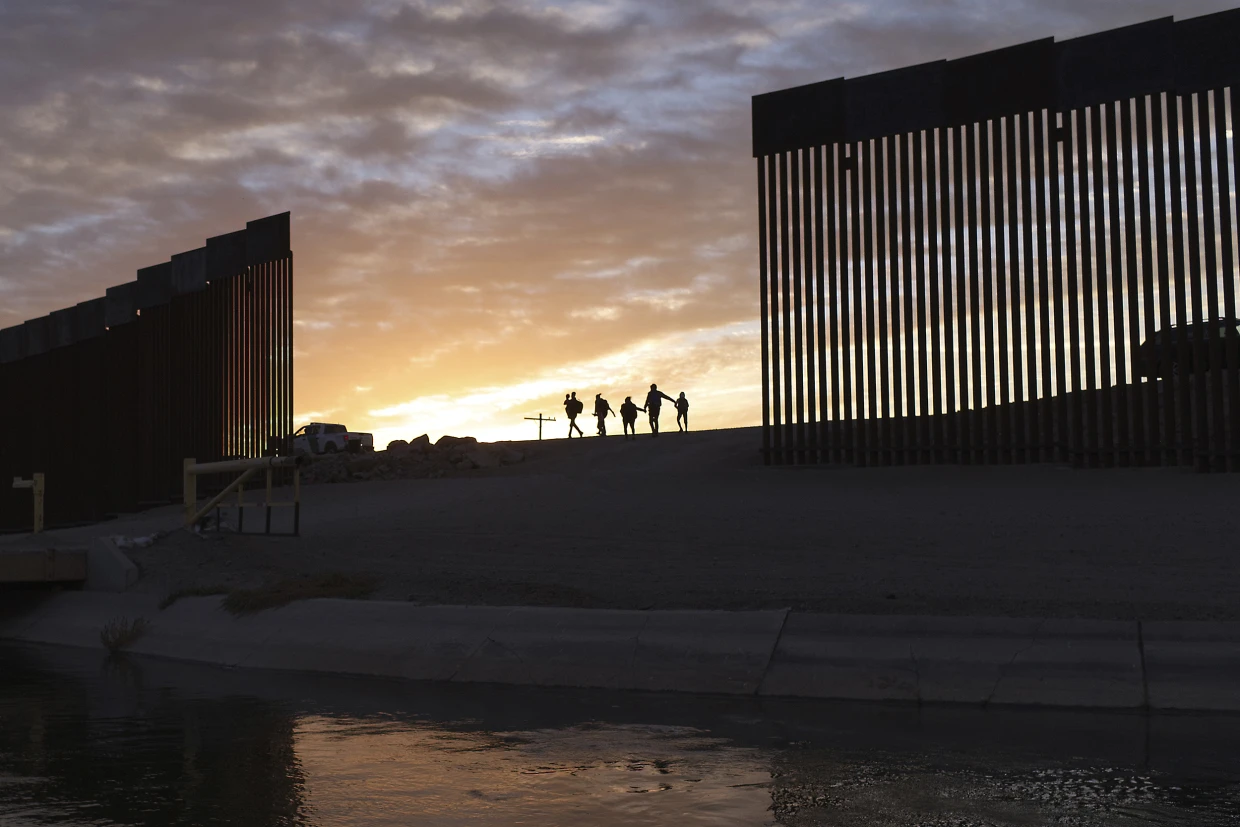This timeline shows how Congress has attempted to change immigration for more than 20 years without success.
As President Joe Biden makes his first trip to the southern border as president, the country is still trapped with antiquated immigration rules and border enforcement, with little possibility for significant change.
In the most recent session, which ended last month, Congress spent more than two decades unable to enact any significant immigration reform. Attempts have repeatedly failed, including those that were supported strongly by the president and were nonpartisan. Instead, the majority of immigration-related changes have only been made through financing bills, minor amendments to other pieces of law, regulations, and presidential authority.
The history of Congress's failures on immigration since the term of President Bill Clinton is shown below.
Friends from Bush's time as Texas governor, President George W. Bush and Mexican President Vicente Fox met at a high level in 2001 to discuss a comprehensive immigration reform plan that they hoped would create a guest worker program and grant legal status to the 8.5 million or so illegal immigrants living in the United States at the time. Both made it a primary priority, with Bush choosing Mexico as the location of his first international trip and Fox attending the first state dinner of the Bush administration. But a few days after the dinner, on September 11, 2001, terrorists hijacked four planes and attacked the Pentagon and the World Trade Center in New York, bringing everything to an end. The attacks brought about a significant change in immigration policy.
The Secure America and Orderly Immigration Act, sometimes known as the McCain-Kennedy bill, was prepared in 2005 by Senators John McCain, R-Ariz., and Edward Kennedy, D-Mass. It would have offered illegal immigrants six-year work visas and the opportunity to change their status to legal residents after paying penalties and passing background checks. The proposed legislation included a path to legal residency as well as a "essential worker visa" that would have permitted 400,000 workers annually to work in the United States. In the Senate, it was never put to a vote.
The Sensenbrenner bill, named for its principal author, former Wisconsin Rep. James Sensenbrenner, R-Wis., was prepared by House Republicans in 2005–2006. The bill would have made anyone in the country unlawfully as well as anyone who assisted them a felon and contained severe punishments for illegal immigration. Additionally, it proposed for hundreds of kilometers of border barrier. The tough regulations led to widespread protests around the nation, led primarily by Latinos. The Comprehensive Reform Act of 2006, which had the support of the Bush administration, was approved by the Senate and the House. The two bills' differences were never settled.
2007: Senate Majority Leader Harry Reid, a Democrat from Nevada, supported a compromise plan that funded additional border barriers, border enforcement technology, and agents as well as a road to citizenship and visas for highly skilled workers. Sens. Jon Kyl, R-Ariz., and Lindsey Graham, R-S.C., among others, supported the bill across party lines, and Bush gave it his full support. In the Senate, it was not put to a vote.
What about the year 2023? Republicans are in charge of the House and Democrats are in charge of the Senate going into the upcoming session, both by very thin margins.
The election of Republican leader Kevin McCarthy of California was delayed by a group of ultraconservative members during the first week of the new Congress, causing a standstill in the House. No amnesty bill would be introduced to the House floor, according to the newly elected speaker.
The chances of a breakthrough that includes enforcement and legal pathways for immigrants are not encouraging, according to Michelle Mittelstadt, a spokeswoman for the Migration Policy Institute, given the infighting, the current influx of migrants arriving at the border seeking asylum, and the impending 2024 presidential elections.



Komentar
Posting Komentar